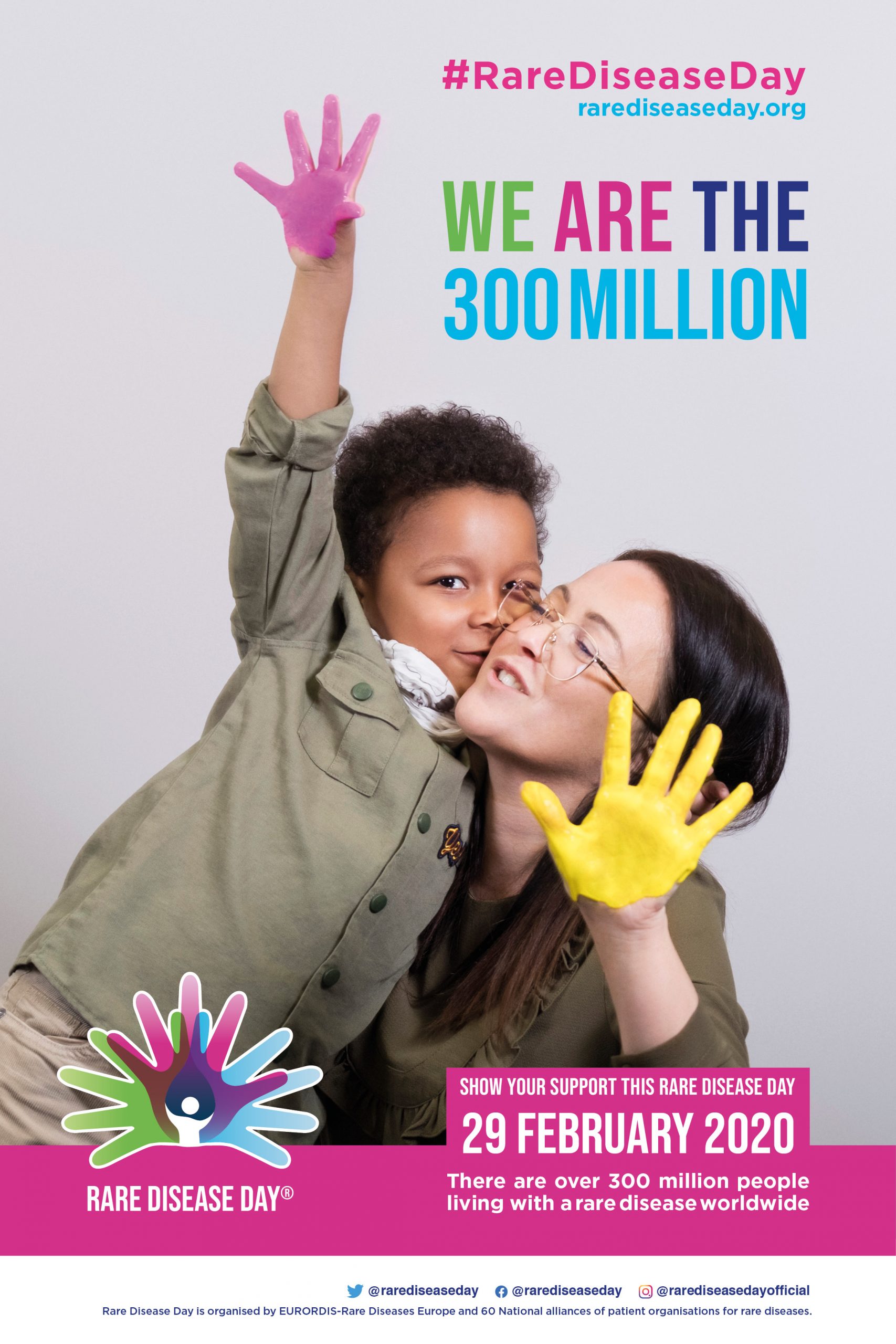for
Individuals
Better Quality of Life
Learn More
Resource

1 in 20 people will live with a rare disease at some point in their lives
This statistic is the reason for Rare Disease Day – which falls on the last day of February. More than 300 million people in the world are currently living with a rare disease. There are over 6,000 different diseases recognized as rare, which speaks to why diagnosis and treatment options can be a challenge.
My family found ourselves face-to-face with an unexpected rare disease one month ago. My 24 year old, previously healthy, brother went to work in the morning and was in a hospital bed, suddenly paralyzed that same night.
That’s when I first learned about rare diseases, specifically Guillain-Barre Syndrome, which is an inflammatory disorder of the peripheral nerves outside the brain and spinal cord.
Sitting there in the ICU listening to the doctors speak sent my mind into a whirlwind. When you suddenly learn about a rare disease much like my family did, it can leave you feeling completely out of control. When you don’t know what to expect or just how serious an illness is, the doctor’s words can’t fully be absorbed. Anxiety and fear are high and thinking rationally is a challenge.
I could see the questions rising above my family members’ heads, almost like bubbles in a cartoon. What is a breathing tube? How do breathing tubes work? How long does a person use a breathing tube? How do you decide when to take someone off a breathing tube? Is this really the best intervention? What does this mean for the future?
Among all the questions about treatment decisions circling in the room, the most important one to me was what can we do to have more control in this situation?
I work as a Specialist at Vital Decisions, and spend my days speaking with people facing advanced stage and chronic illnesses. I often work with their loved ones too, so I knew how being prepared would help us to feel more in control.
Here’s what I’ve learned in my years of doing this work: It is ten times harder to make heavy treatment decisions — like whether or not your loved one needs life support — if you’ve never talked about, heard about, or had any knowledge of what interventions exist.
Having knowledge of these types of treatment decisions and interventions helped me to feel more prepared compared to other family members who had no previous knowledge and felt completely overwhelmed. When faced with a medical crisis, there are always factors that are out of our control, but what I know from my role as a Specialist is how much you can empower yourself by understanding the treatment decisions you could be faced with. Here’s my heartfelt advice:
Knowledge is power. We researched, we got support, we made connections and we prepared for both what the best- and worst-case scenarios could be with this rare disease. It was then that we knew what we were up against. In the end we were fortunate that we didn’t have to experience the worst of this disease, but we know that many others do.
Where do we find hope? Without the promise of a cure, for many rare diseases we can seek greater awareness of these medical conditions, what treatments are, and how to best incorporate what matters most.
We can aim to seek understanding and in doing so, help people live with these diseases and offer support.
We can talk to the people who experience similar conditions and find support by learning from others’ experiences.
As a Vital Decisions Specialist, I help people facing serious illness identify what really matters and we talk about how to communicate those wishes as part of Advance Care Planning. A serious illness presents difficult treatment decisions that aren’t easy to navigate alone. My personal experience watching my brother suffer from a rare disease has strengthened my resolve to help more people through my work at Vital Decisions.
What is Rare Disease Day?
Rare Disease Day is a movement that started in 2008 in 18 countries and has now grown to over 100 countries. Awareness of these diseases can not only help those affected find the proper care, but also help increase the knowledge within the general public, and aid in prevention. Awareness can also open up the doors of communication to discuss treatment decisions before encountering a crisis.
Rare Disease Day is a chance for millions to tell their story and to be heard. Thanks for letting me share mine.
To learn more about Rare Disease Day, I encourage you to visit